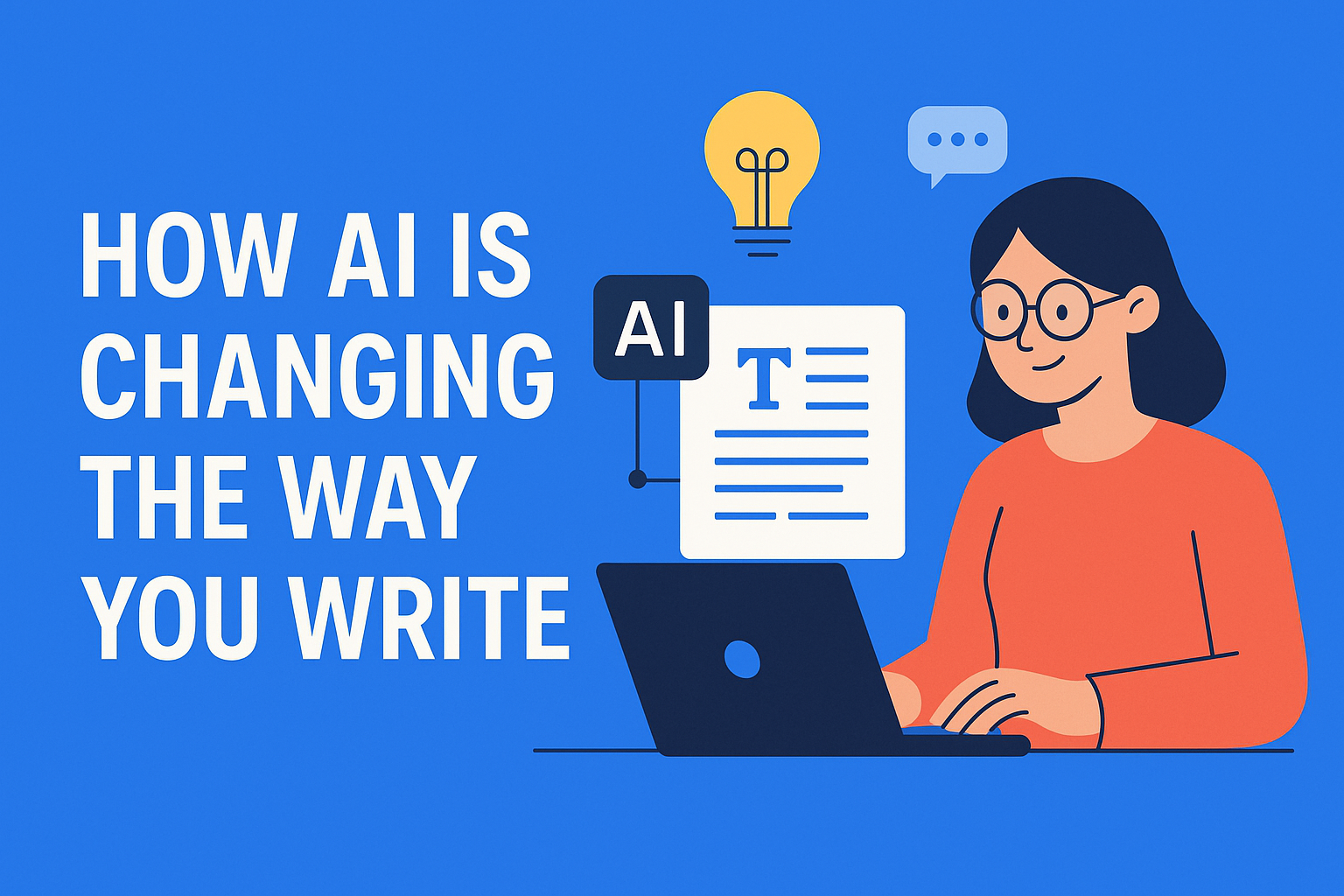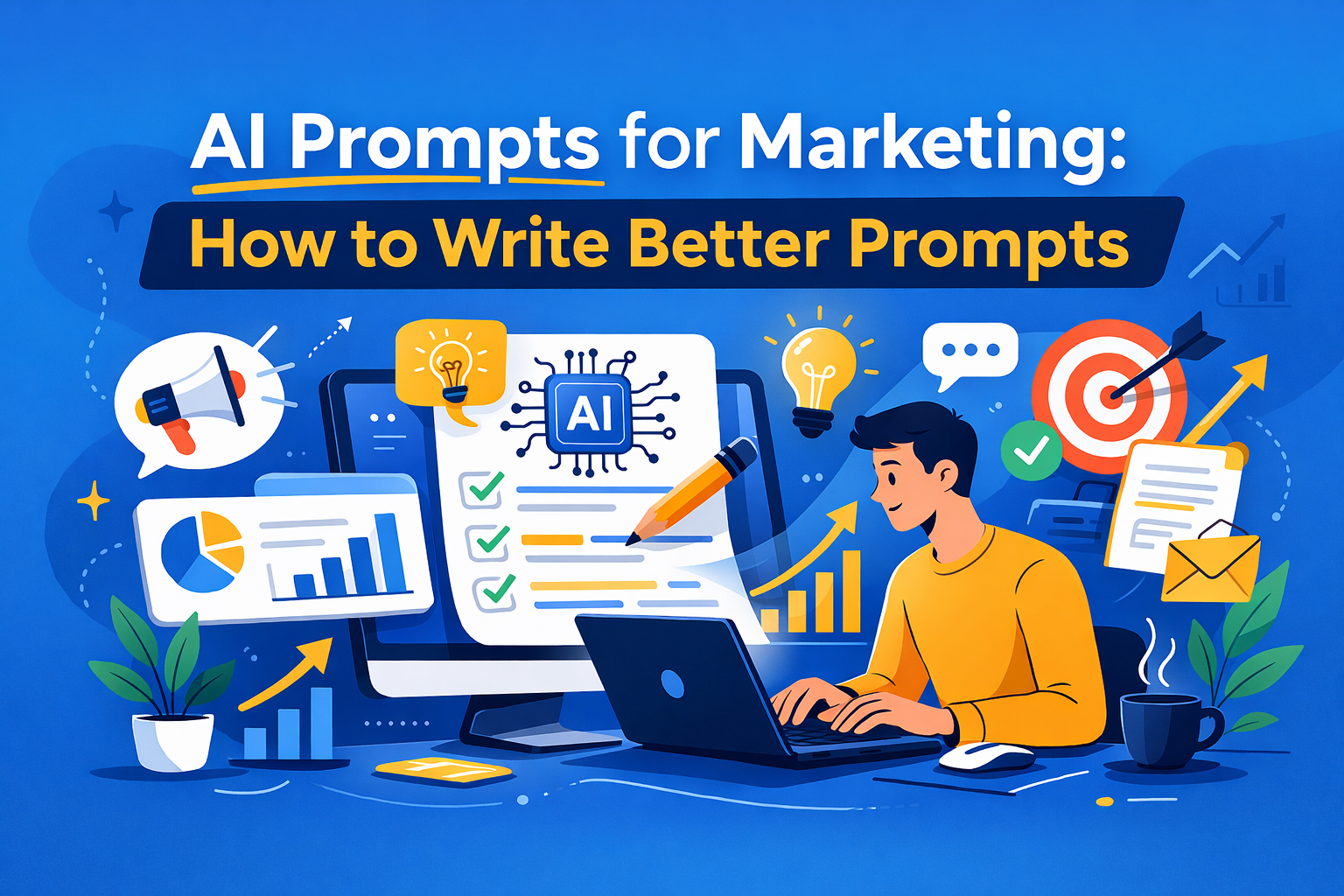How AI Is Quietly Changing the Way You Write
AI is changing how we write, one smart suggestion at a time. From drafting to editing, tools like ChatGPT and EasyContent help speed up your workflow without losing your voice. Here's how AI became your quiet co-writer.

Remember how writing used to be? You'd open a Word doc, spend half an hour on your first sentence, and slowly work your way through. Today? While you're still thinking, AI is already offering your first sentence and the rest of the draft.
Most of us are using AI tools without even realizing it. Grammarly fixes your punctuation, Google finishes your sentence, and ChatGPT drafts your blog post. Artificial intelligence is quietly, steadily transforming the way we write.
Key Takeaways
- AI is already part of your writing process - tools like Grammarly, Google Docs, and ChatGPT shape our sentences more than we realize.
- The role of AI has evolved - from grammar checker to full-on co-author, helping with everything from ideation to final edits.
- Your voice still matters - AI may polish your writing, but only you can inject real tone, opinion, and human nuance.
- Dependency is real - but it’s about balance. Use AI for efficiency, not as a creative crutch.
- EasyContent helps teams write smarter - blending AI support with collaborative editing, version control, and publishing workflows.
From Spellcheck to Co-Author: The Evolution of Writing
It started with spellcheck and grammar tools. Remember those red and green squiggly lines in Microsoft Word? Helpful, but basic.
Then came tools like Hemingway and Grammarly. They didn’t just fix your mistakes, they started suggesting tone, clarity, and style. They weren’t just looking at what you wrote, but how you wrote it.
Then things got serious. AI moved from passive editor to active writing partner. It doesn’t just correct, it collaborates.
Modern AI writing assistants understand context, analyze tone, and suggest improvements in real time. You're not writing alone anymore, and that changes everything.
Everyday AI: Already Embedded in Your Workflow
You probably don’t even notice how often AI supports your writing:
- Gmail offers "Smart Compose" and finishes your sentences.
- Google Docs recommends alternative phrasings to sound more professional.
- LinkedIn suggests text for your posts.
All these small tools are part of a much bigger picture, you’re already writing with AI, almost daily. And that’s okay. These changes happen gradually, almost invisibly, but they shift the way we think and communicate in writing.
It’s like smartphones didn’t replace regular phones overnight, they slowly took over. Writing is going through the same transformation.
AI as Co-Writer: From Drafting to Polishing
Let’s be honest, how many times have you started writing something and thought, “Let me ask ChatGPT for help”? We all do it. Some look for ideas, others for structure, and some want an entire first draft.
Tools like ChatGPT, Jasper, Notion AI, and others have come a long way. They’re no longer just inspirational aids, they draft, refine, and suggest CTAs.
That’s where EasyContent can really help. The platform makes it easier for teams to write, edit, and publish content, because everything’s in one place. And with integrations for tools like Grammarly and Jasper, the whole writing process flows faster and smoother - from the first draft to the final version.
Shaping Your Style: Is Your Voice Still Yours?
As we rely more on AI in our writing, a big question arises: Are we losing our authentic voice?
AI often suggests “better” alternatives. But sometimes, “better” means more generic. Does your content still sound like you, or like everyone else using the same tools?
Say you're writing a newsletter, and AI suggests making it more formal, is that really your tone? Or is your voice slowly blending into a polished corporate blur?
That’s why it's important to decide where AI helps and where you want full control. Writing with AI is like cooking with a recipe; it’s great for guidance, but flavor depends on your personal touch.
Ethical Questions and Silent Dependency
Sometimes you just need a little help. But what happens when you’re not writing anything yourself anymore?
In education, media, and content marketing, people are already debating: where’s the line? When does “your” content stop being yours?
We’re becoming increasingly reliant on AI, and that can be a double-edged sword. On one hand, we save time and get higher quality. On the other, we risk losing the muscle memory of raw, original writing.
That’s why balance is key. AI can help you write faster and clearer, but it shouldn't replace your creativity.
Conclusion: Embrace the Shift, but Stay You
AI is quietly transforming how we write, and that’s not a bad thing. We're faster, more efficient, and less bogged down by minor errors. We can focus more on the message.
But through it all, it’s important to remember who is writing. AI is a tool. You’re the author.
In the future, AI will play an even bigger role in writing. Maybe one day you’ll just assign a topic, and machines will handle the rest. Or maybe we’ll value human authenticity even more.






